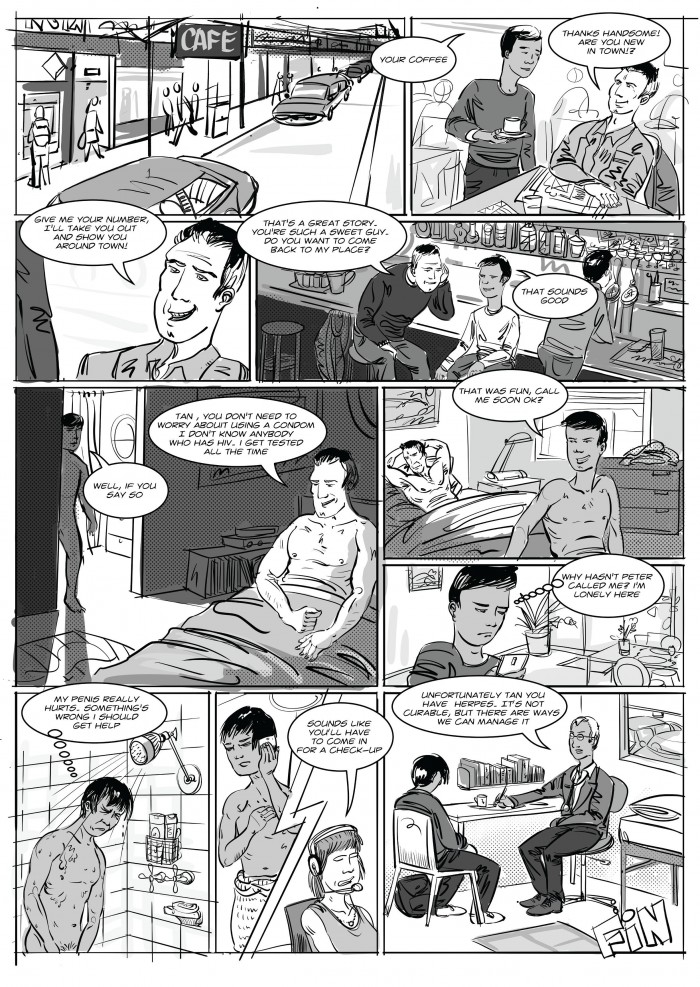Facilitators Guide
Summary of the story
Tan is working in a café, he’s newly arrived to Australia. Tan serves Peter a coffee, and Peter offers to take Tan out. Tan and Peter go on a date and Tan goes back to Peter’s home for sex. Tan has suggested using a condom, but Peter doesn’t want to. Tan persuades Peter to use a condom anyway. Tan catches up with a friend and they discuss being confused at navigating the ‘gay scene’ here.
General Questions to start discussions and explore the story
- What’s happening in this story?
- Explore points that are raised by participants – ask more questions about their statements.
Hints to prompt discussion
- People who are not familiar with the sexual norms and culture of a community (in this case, the MSM (men who have sex with men) community) can be vulnerable to the influence of people more experienced in that community.
- Many people try to refuse to use condoms. If given the option of sex with a condom or no sex at all, most people will agree to use a condom. It is important to be firm and insist on using a condom during sex to reduce the risk of blood borne viruses and sexually transmissible infections (BBVs and STIs).
- People sometimes lie to convince their partners to have sex with them, or do not know the facts.
- In Australia men who have sex with men have a higher risk of getting HIV than heterosexual sexual partners.
- You can’t tell if someone has HIV or another BBV/STI just by looking at them. Many people living with HIV or other BBV/STIs do not know they have them and may be passing them on without realising.
- Sex won’t necessarily make someone feel less lonely.
- Having any type of unprotected sex comes with the risk of BBVs and STIs.
- If you are sexually active it is important to go for regular sexual health testing – recommendations advise men who have sex with men to go every three months for testing and other people to go every six months, even if you don’t have symptoms.
- People who are at a higher risk of HIV, can take PrEP – pre-exposure prophylaxis. This is a pill that you take once a day and can get from your doctor. It is very effective at stopping people from getting HIV when they are taking the pill every day.
- Thorne Harbour Health run workshops for gay and same-sex attracted men to socialise and learn about sexuality and well-being. The workshops are free and run by other gay and same-sex attracted men. For more information, visit their website.




 SHARE
SHARE